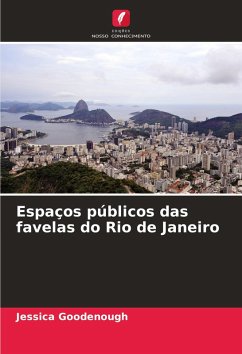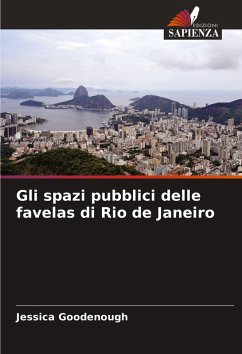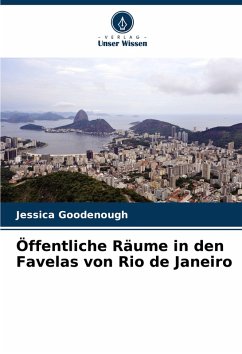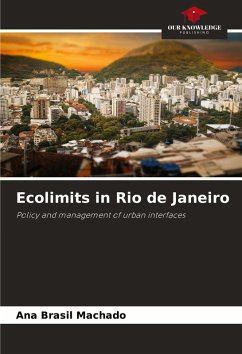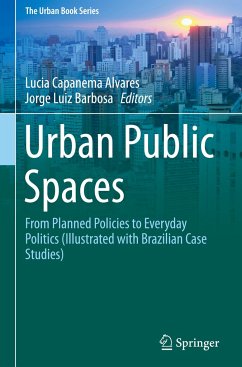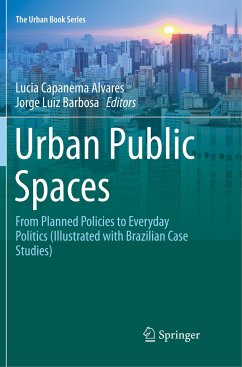
Public spaces of Rio de Janeiro's favelas
Versandkostenfrei!
Versandfertig in 6-10 Tagen
41,99 €
inkl. MwSt.

PAYBACK Punkte
21 °P sammeln!
Public spaces are vital parts of the city, contributing to its quality of life, and are a reflection of both its qualities and problems. Favelas are informal settlements, built organically according to the needs of their residents. They however suffer from stigma and thus are the place of top-down projects and of the militarisation of public spaces. Jessica explores how public spaces can be an important lens to read the urban dynamics in the favelas and the effects of State intervention on public life. Through observations and interviews, she gained knowledge about the public space and the use...
Public spaces are vital parts of the city, contributing to its quality of life, and are a reflection of both its qualities and problems. Favelas are informal settlements, built organically according to the needs of their residents. They however suffer from stigma and thus are the place of top-down projects and of the militarisation of public spaces. Jessica explores how public spaces can be an important lens to read the urban dynamics in the favelas and the effects of State intervention on public life. Through observations and interviews, she gained knowledge about the public space and the users' experience of it. The methodology of public life studies and the specificity of the favela context interact in her research work, to create a reflection on the possibility of another urbanism, based on the qualities of the communities and their adaptive physical environment, and the potential for green infrastructure in the dense city.



